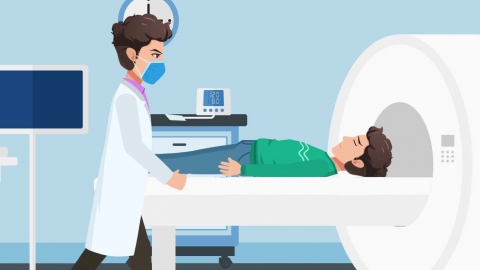Can CT-guided stereotactic surgery treat brain tumors and stroke?
Generally, CT-guided stereotactic surgery can assist in the treatment of brain tumor stroke, and its therapeutic effects and applicability need to be determined based on the patient's specific condition. Detailed analysis is as follows:

CT-guided stereotactic surgery is a surgical navigation method that combines CT scanning and stereotactic techniques, using a three-dimensional coordinate system to precisely locate intracranial lesions. In the treatment of brain tumor stroke, CT scans allow doctors to clearly visualize the tumor and its relationship with surrounding tissues, accurately determining the tumor's location, size, and shape. This provides crucial reference information for surgery and helps doctors formulate more precise surgical plans.
During the surgical procedure, CT-guided stereotactic technology can serve as a navigation tool, helping doctors track the position of surgical instruments in real time and ensuring accurate access to the tumor site. This can enhance the precision of tumor resection and reduce damage to surrounding normal tissues. Postoperatively, follow-up using CT-guided stereotactic techniques can help evaluate surgical outcomes, determine whether the tumor has been completely removed, and detect any signs of recurrence or metastasis.
However, it should be noted that CT-guided stereotactic surgery alone cannot cure brain tumor stroke. The treatment of brain tumor stroke requires comprehensive consideration of the patient's individual circumstances and the formulation of a personalized treatment plan. Patients should actively cooperate with their doctors' treatment recommendations, maintain a positive mindset and good nutritional status to enhance treatment effectiveness and improve quality of life.





